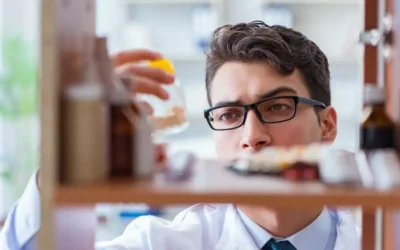Treatment for substance use disorder can be inpatient or outpatient and is unique to each individual. NaltrexoneNon-addictive opioid antagonist that blocks the effects of other narcotics; daily pill or monthly injection. To understand more about heroin overdose, visit our page on heroin overdose signs, symptoms, and treatments. Having this condition means heroin use has disrupted your life, and you have trouble controlling how much you use. In 2020, Oregon passed Measure 110 to decriminalize drug possession. If you’re found with under 1 gram of heroin in your possession, you now get a Class E violation instead of a felony.
How Are Substance Use Disorders (SUDs) Treated?
Methadone is one component of a comprehensive treatment plan, which includes counseling and other behavioral health therapies to provide patients with a whole-person approach. Bear in mind that stopping taking drugs is only one part of recovery from addiction. Strategies that help people stay in treatment and follow their recovery plan are essential. Along with medical and mental health treatments, the following are steps you can take to help overcome substance use disorder.
Prescription opioid use is a risk factor for heroin use – National Institute on Drug Abuse
Prescription opioid use is a risk factor for heroin use.
Posted: Wed, 17 Jan 2018 08:00:00 GMT [source]
Pregnant or Breastfeeding Women and Methadone
Maintaining recovery may be easier as time passes, but you should never let your guard down. Depending on the severity of your addiction, treatment may last several months or several years. You can find heroin rehab or support groups by calling a heroin hotline. These toll-free services provide free information to people affected by heroin addiction. For decades, treatment has centered on an abstinence-only approach, consisting of detox and rehab, accompanied by counseling or group therapy, many inspired by the 12-step model.
Detox Is Not Stand-Alone Treatment

Consider participating in positive activities, such as exercise, meditation, and other recreational pastimes. While AA and NA may be best known, an internet search for “recovery support groups near me” may give you additional choices. Medication can also be used to help re-normalize brain function and decrease cravings.

Inpatient Treatment
Your risk of overdosing from a speedball is significantly higher than your risk of overdosing on either drug alone. Contrary to popular belief, opioids and stimulants do not cancel each other out. For example, heroin could make your heart beat very slowly, but once it wears off, heroin addiction treatment the meth in your system could push your heart into overdrive. American Addiction Centers (AAC) is committed to delivering original, truthful, accurate, unbiased, and medically current information. We strive to create content that is clear, concise, and easy to understand.
Whether it’s someone’s first time using heroin, or they’re someone who has used heroin many times, as an illicit substance of often unknown purity or effective dose, the drug may always carry a risk for overdose. Consuming illicitly-manufactured opioids, such as heroin, is inherently dangerous; it’s extremely difficult to discern whether heroin could be laced with other dangerous substances, such as fentanyl. Because addiction can affect so many aspects of a person’s life, treatment should address the needs of the whole person to be successful. Counselors may select from a menu of services that meet the specific medical, mental, social, occupational, family, and legal needs of their patients to help in their recovery.
Common and Serious Side Effects of Methadone
CBT can help someone develop stronger self-control and more effective coping strategies. The severity of addiction and drug or drugs being used will play a role in which treatment plan is likely to work the best. Treatment that addresses the specific situation and any co-occurring medical, psychiatric, and social problems is optimal for leading to long-term recovery and preventing relapse.
- Guided Self-Change (GSC) is a brief cognitive-behavioral and motivational approach first developed for people with alcohol use disorder and then expanded to treat other types of substance use.
- Another type of therapy called contingency management offers rewards such as vouchers or money if you can stay drug-free.
- Motivational interviewing (MI) is client-centered counseling developed to help you find the internal motivation to quit.
- A person will want to consider actions they can take such as committing to change, seeking support, and eliminating triggers.
- A .gov website belongs to an official government organization in the United States.
- After a period of stability (based on progress and proven, consistent compliance with the medication dosage), patients may be allowed to take methadone at home between program visits.
- Research says those who get medication along with counseling are more likely to stay in treatment, and have a lower risk of relapse.
- For more information on evidence-based guidelines visit Addiction Medicine Primer.

